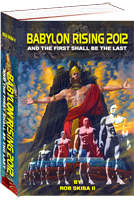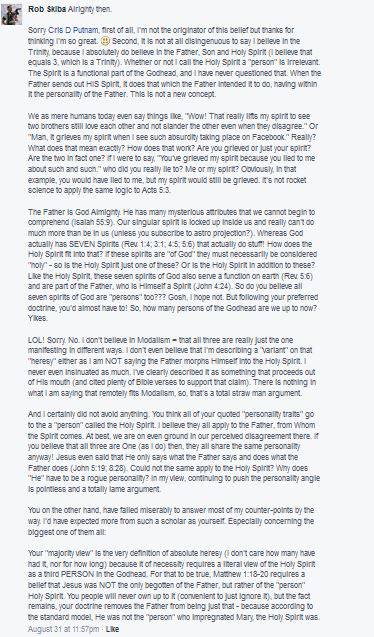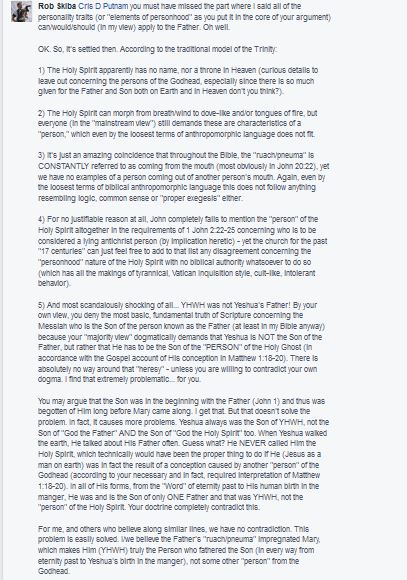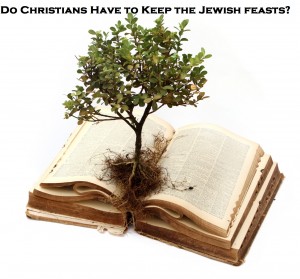 Popular author Rob Skiba is intentionally deceiving his followers. It is a matter of public record that I have confronted him concerning his denial of the trinity, specifically the personhood of the Holy Spirit. Terms like “trinity” have specific definitions that reasonable people agree on in order to make communication possible. Think about it this way, if I decided to redefine the word “red” to match the color green and then started stopping at green lights I would cause a traffic accident. Well Skiba is causing a theological pileup on the freeway. Recently he published a statement of faith on the internet. His disingenuousness ( I will prove) is apparent right from the start in point number one:
Popular author Rob Skiba is intentionally deceiving his followers. It is a matter of public record that I have confronted him concerning his denial of the trinity, specifically the personhood of the Holy Spirit. Terms like “trinity” have specific definitions that reasonable people agree on in order to make communication possible. Think about it this way, if I decided to redefine the word “red” to match the color green and then started stopping at green lights I would cause a traffic accident. Well Skiba is causing a theological pileup on the freeway. Recently he published a statement of faith on the internet. His disingenuousness ( I will prove) is apparent right from the start in point number one:
I believe in one eternal God whose name is YHWH (Deuteronomy 6:4). He is the Father of the only begotten Son, Yeshua (a.k.a. Jesus – John 3:16) , and He has sent His Holy Spirit to empower, comfort and encourage us in our walk with Him. I believe the Father, Son and Holy Spirit are one (Genesis 1:1-4; Isaiah 11:1-5; John 1:1-14; 10:30; 17:11; 1 John 5:7), thus, commonly referred to as the Trinity. [1]
He wants people to read it and think he is affirming the trinity. But he really is not. The above statement is intentionally deceptive. I have undeniable proof that he does not believe what is “commonly referred to as the Trinity.” He argues vigorously against the trinity and my facebook notes comment section have a record of it. What is “commonly referred to as the trinity” is undeniably “one God in Three persons.” Here are some sources.
Pocket Dictionary of Apologetics & Philosophy of Religion:
Trinity. The Christian understanding of God as triune. Trinity means that the one divine nature is a unity of three persons and that God is revealed as three distinct persons: Father, Son and Holy Spirit. The ultimate basis for the Christian doctrine of the Trinity lies in the divine self-disclosure in Jesus, who as the Son revealed the Father and poured out the Holy Spirit. See also economic Trinity; immanent Trinity.[1A]
Here’s another theological dictionary:
Trinity A reference to the doctrine that God is one and yet exists eternally in three persons.[2]
Even a non-specialist dictionary like Webster’s gets it right:
Trin•i•ty \ˈtri-nə-tē\ n
[ME trinite, fr. AF trinité, fr. LL trinitat-, trinitas state of being threefold, fr. L trinus threefold] 13c
1 : the unity of Father, Son, and Holy Spirit as three persons in one Godhead according to Christian dogma
2 not cap : a group of three closely related persons or things
3 : the Sunday after Whitsunday observed as a feast in honor of the Trinity[3]
It doesn’t get any more “common” than Webster’s. Clearly, what is commonly referred to as the trinity is the belief in “one God in three persons.” Rob denies the Holy Spirit is a person just like the Jehovah’s Witnesses and Mormons. This is Rob’s comment from our facebook discussion that first alarmed me to his cultic theology.
Note in the last paragraph he writes the majority view (one God in three persons) “is the very definition of absolute heresy.” So he has effectively called every Christian theologian over the last 1700 years a heretic. He has no respect for anyone who has come before him and, as shown in previous posts, his cultist views are based on a surface reading of an English translation. Very poor form. But now he publishes a faith statement giving the reader the impression he affirms what he so vehemently denies? His conscience is apparently seared. He is very well aware that what he believes is far removed from what is “commonly called the trinity.” So why is Rob misleading you about his beliefs? He wants to keep his fans and followers who might (and should) leave his fold if he told the truth.
It is common practice amongst the cults. For example The Way International holds a similar stance. Ken Boa writes, “The Way often uses the right terminology but in the wrong way.”[4] Similarly, “Theosophy proceeds deceitfully and parasitically by its practice of using (misusing) Christian terminology.”[5] Also, “Though this cult uses Christian terminology to communicate its mystical Eastern concepts to a Western audience, it is vehemently opposed to every major tenet of biblical Christianity.”[6] If it walks like a duck then it’s probably a ___ *quack! Skiba’s deceptive faith statement is clearly cultic because it uses known Christian theology to deceive followers into thinking he affirms Christian doctrine. If you follow Rob Skiba’s teaching and attend his church you have joined ranks with these cult groups listed here. Birds of a feather…
Addendum, here’s another argument from Skiba that clearly shows he does not believe “what is commonly referred to as the trinity”:
[1] Rob Skiba, “Statement of Faith” http://www.babylonrisingblog.com/Faith.html (accessed September 24, 2013).
[1A] C. Stephen Evans, Pocket Dictionary of Apologetics & Philosophy of Religion (Downers Grove, IL: InterVarsity Press, 2002), 118.
[2]Millard J. Erickson, The Concise Dictionary of Christian Theology, Rev. ed., 1st Crossway ed. (Wheaton, Ill.: Crossway Books, 2001), 204.
[3] Merriam-Webster, Inc. Merriam-Webster’s Collegiate Dictionary. Eleventh ed. Springfield, Mass.: Merriam-Webster, Inc., 2003.
[4]Kenneth Boa, Cults, World Religions, and the Occult (Canada; England: Victor Books, 1990), 244.
[5] Boa, Cults, World Religions, and the Occult, 138.
[6]Boa, Cults, World Religions, and the Occult, 131.






